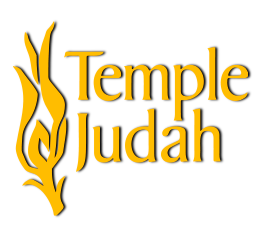Shana Tova Everyone,
This past Shabbat, on Yom Kippur, we stood before God, as we always do, offered ourselves in repentance, and were forgiven for our transgressions of the past year. We then began the New Year, as we begin every New Year, with a “clean slate,” with a new chance to be better human beings.
This month, as we again read the story of Noah in our weekly Torah portion, we see a similar pattern emerging. Beset with transgression and error, sin and lawlessness, the people of Noah’s generation have provoked the full wrath of God. Having no sense of regret for their behavior, no desire for repentance in their heart, God decides to destroy them all and start over with Noah. Noah, who is depicted as the most righteous of his generation, is selected to save the world. He is commanded to build an ark that will survive the ensuing flood, to stock it with two of each species, and to seal he and his family inside. Following the Flood, he, his family, and the animals which he saves will then start over. They represent the best of God’s creation, the forgiven who are granted a “clean slate.” The righteous who are inscribed in the Book of Life and offered a fresh start.
It seems odd, however, that God should punish the world so severely in this story. The God our people stood before at Mount Sinai and the One we stand before on Yom Kippur, is described differently. About this God it is written, “You are a God of forgiveness: gracious and merciful, endlessly patient, loving and true. You ask evildoers to return to You, and do not seek their death; for it has been said: ‘Declare to them: As I live, says Adonai, it is not the death of the wicked I seek, but that they turn from their ways and live.’”
Yet the God found in Noah’s story offers no overt opportunity for repentance, no chance for the people to change their evil ways and turn back for their own salvation. This God merely tells Noah of the coming flood, commands him to build an ark, and then destroys the world upon the ark’s completion. No other warning is given, no second chance is granted.
The midrash on this story, however, suggests that these opportunities did exist within this story, and that God wouldn’t have followed through with the flood had there been any signs of repentance and atonement at the time. It reads, “Why did the Holy One tell Noah to make an ark? So that others would see him working on it and would then repent . . . In fact, the Holy One said: Because I say to him, ‘Make an ark of gopher wood,’ he will get busy with it, cutting down cedars, and people will gather around him and say to him: ‘Noah! What are you making?’ He’ll reply: ‘An ark! Because the Holy One plans to bring a flood upon the world!’ As a result of this, they will pay heed and repent. So the Holy One thought. But they took no notice.”
Some suggest that Noah was wrong in this story. That he could have argued with God for the salvation of humanity as Abraham and Moses do later in the Torah. This suggestion, however, ignores exactly what the midrash points out. The people of Noah’s generation had no desire to help themselves. It couldn’t have been an easy task for Noah to build the ark that he built, yet his neighbor’s and friends never lifted a finger to help. As the story reads, they don’t even ridicule him for believing a flood is coming. They are so caught up in their own ways, their own lives, their own desires and needs, they don’t even notice what Noah is doing, and that is why they don’t repent.
It is a warning we should all heed. Self-centeredness and egotism prevent us from seeing what is really happening around us or making the changes that are necessary to really improve ourselves or the world the around us.
This New Year can be different, however. We have been given the “clean slate” we prayed for. What we write upon it is entirely up to us.
G’mar Chatimah Tova
May we be inscribed for good.
Rabbi Todd

